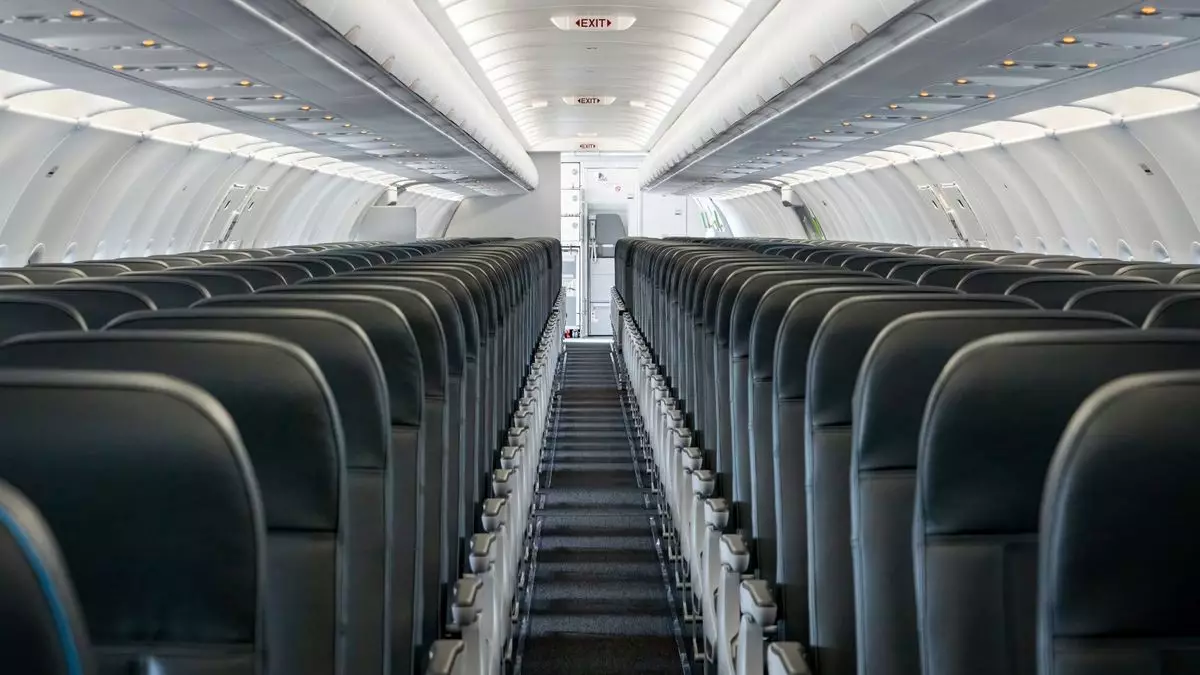In recent years, the airline industry has evolved to rely increasingly on ancillary revenues—essentially extra charges that augment the base cost of air travel. A report from the Senate Permanent Subcommittee on Investigations has shed light on the substantial earnings airlines enjoy from seat-selection fees, totaling a staggering $12.4 billion from 2018 to 2023. This figure not only highlights the growing trend of **ancillary fees** but also serves to initiate discussions around revenue accountability, taxation practices, and pricing transparency in a business notoriously known for its hidden costs.
The $12.4 billion in seat-selection revenue marks a significant portion of the overall income for the five airlines under scrutiny: American Airlines, Delta Air Lines, United Airlines, Spirit Airlines, and Frontier Airlines. This revenue stream has become the second-largest source of ancillary income, trailing only behind bag fees. For airlines, such fees provide a profitable means of increasing earnings without altering base ticket prices. This reliance on additional income sources also reflects a changing consumer landscape where travelers have become accustomed to selecting various services, resulting in added complexities and unexpected costs.
Taxation of Ancillary Fees: A Controversy Unfolds
The report reveals variances in how airlines account for these seat fees under federal tax regulations. While American and Delta Airlines acknowledge their seat-selection revenue as part of taxable income—paying the standard 7.5% federal air transportation excise tax—Spirit and Frontier Airlines appear to lessen their tax burden by categorizing seat fees as ancillary revenue, which may not be subject to the same taxation protocols. This disparity raises crucial questions about the integrity of tax regulations within the airline industry and whether loopholes allow airlines to sidestep proper tax contributions.
Both Spirit and United Airlines feature notably lower effective tax rates on their seat-selection revenue, suggesting a strategic reclassification that may impact governmental revenue. Hence, policymakers may need to reassess the regulations guiding the taxation of airline fees to ensure fair compliance across the industry.
Fostering Legislative Action
In light of the report’s findings, the Senate subcommittee has taken a strong stance by recommending that Congress enact laws requiring airlines to disclose detailed data on seat fees, paralleling existing requirements for bag fees. This legislative push indicates a growing recognition of the need for transparency within the airline industry—a field often criticized for convoluted pricing strategies that obscure real travel costs for consumers.
The report further urges the Treasury Department to conduct an investigation into ensuring compliance with excise tax regulations. Such measures aim to enhance accountability and fairness in the financial operations of airlines.
The subcommittee’s scrutiny did not stop at mere compliance but ventured into the revenue evolution over the years. The reported $3 billion in seat-selection revenue for 2023 reflects a notable increase from the $2 billion recorded in 2018. This growth demonstrates not only an increased reliance on ancillary fees but also a broader trend wherein more airlines are actively promoting and monetizing seat selection as an integral part of the booking process.
In particular, Spirit Airlines has seen the largest proportional increase in seat-selection revenue, underscoring the implications of low-cost carrier strategies that often hinge on optional add-ons. Conversely, Delta Airlines, despite being one of the largest U.S. carriers, generates the least percentage of its revenue from such fees—further indicating diverse business models within the aviation sector.
Concerns Over Consumer Transparency
An essential issue carried within the report is the criticism of airlines’ practices concerning the disclosure of fees. Notably, it’s revealed that some airlines, such as Spirit, require customers to provide personal information before displaying costs associated with seat selection. This tactic raises ethical questions about influencing customer behavior and whether passengers are adequately informed about their financial commitments as they progress through the booking process.
Moreover, Spirit’s policies regarding commission-based incentives for agents who collect bag fees particularly warrant scrutiny. The report points towards alarming trends where incentivization could lead to agents improperly charging customers for carry-on bags, subsequently fueling complaints regarding baggage policies. Such actions could violate the dignity of customer service aims and merit closer examination.
Amid rising concerns over transparency and fair customer treatment, the Senate subcommittee has made recommendations for the Transportation Department. A potential investigation into the practices of airline incentives could lead to improved regulatory frameworks, ultimately aiming to safeguard consumer interests. Given the complexities of the modern airline industry, such oversight may be essential to foster trust and ensure that travelers are not misled or subjected to unjust fees.
As the airline industry continues to navigate the delicate balance between profitability and customer satisfaction, the focus on ancillary fees will remain a contentious topic. The Senate report serves as a crucial stepping stone in fostering dialogue around fair practices, transparent pricing, and comprehensive regulations that hold airlines accountable for their revenue streams. Only through vigilant oversight and consumer awareness can the practice of ancillary fees be aligned more closely with fairness and accountability in air travel.


Leave a Reply